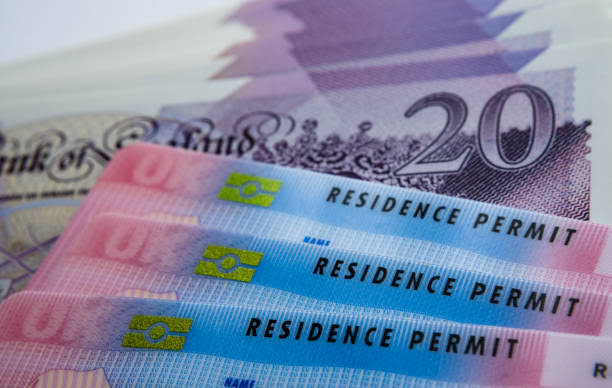Permanent Residency under Qatari Law

In line with Qatar’s commitment to improving the residency framework for expatriates and acknowledging their role in the nation’s development, the State enacted Law No. (10) of 2018 concerning Permanent Residency. This legislation marks a significant milestone in the evolution of legal provisions governing expatriates and foreign residents in Qatar.
1. Conditions for Granting Permanent Residency
According to Article (1) of Law No. (10) of 2018, the following criteria must be met for an individual to be eligible for permanent residency in Qatar:
- Duration of Residency:
The applicant must have legally resided in Qatar for at least twenty (20) consecutive years if born outside the country, or ten (10) consecutive years if born within Qatar. This period must immediately precede the application date. Temporary absences from the country are permitted, provided they do not exceed sixty (60) days per year. Any such absence will be deducted from the total residency period. - Financial Solvency:
The applicant must demonstrate sufficient income to support themselves and their dependents. The minimum required income level is determined by a resolution issued by the Council of Ministers. - Good Conduct:
The applicant must have a clean criminal record and be known for good reputation and behavior. Individuals convicted by a final judgment of a crime involving moral turpitude or dishonesty are disqualified unless they have been legally rehabilitated. - Arabic Language Proficiency:
The applicant must possess an adequate level of proficiency in the Arabic language.
2. Exceptions to General Conditions
Article (2) of Law No. (10) of 2018 provides that permanent residency may be granted, by exception, to certain categories of individuals without the need to satisfy the standard conditions outlined in Article (1). These categories include:
- Children of Qatari women married to non-Qatari men
- The non-Qatari husband of a Qatari woman
- The non-Qatari spouse of a Qatari national
- Children of naturalised Qatari citizens
- Individuals who have rendered exceptional services to the State
- Persons with rare or highly needed skills and qualifications that serve national interests
2. Benefits of Permanent Residency
Holders of the Permanent Residency Card are entitled to a range of privileges under the law, including:
- Freedom of Movement:
The right to enter and exit Qatar without the need for prior permission or authorization, for the duration of the card’s validity. - Access to Government Services:
Eligibility to receive healthcare and education services in government institutions, in accordance with the conditions and regulations established by a decision of the Council of Ministers. - Investment and Property Ownership:
The right to invest in sectors of the national economy specified by the Council of Ministers without the requirement of a Qatari partner, as well as the ability to own real estate for residential or investment purposes in designated areas. - Family Benefits:
The cardholder’s spouse and children (up to the age of 18) are entitled to the same residency, healthcare, and education benefits. - Employment Priority:
Priority consideration for appointment to civil and military public sector jobs, immediately following Qatari nationals.
3. Exemption from Sponsorship Requirement
One of the most notable benefits of holding a Permanent Residency Card is the exemption from the sponsorship (kafala) requirement. This grants the holder greater autonomy in terms of mobility, employment, and investment within the State of Qatar.
4. Recent Amendments
As of the date of this publication, no official amendments have been issued regarding Law No. (10) of 2018 on Permanent Residency. It is recommended to regularly consult the Official Gazette or the Ministry of Interior’s official website for any future updates or legislative developments.
Conclusion Qatar’s Permanent Residency Law represents a strategic initiative aimed at fostering social and economic stability while recognizing the valuable contributions of long-term residents to the country’s development. By extending rights and privileges closely aligned with those of Qatari citizens, the law reinforces a sense of national integration and loyalty. It also plays a vital role in supporting the goals of Qatar National Vision 2030, which seeks to build a cohesive, prosperous, and forward-looking society.

